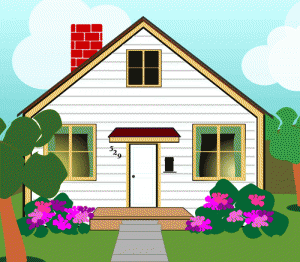You are no stranger to finding homes to rent. You know all about lease agreements and requirements, dealing with neighbors and filing maintenance requests with a landlord. You know how to get your security deposit back. What you don’t yet know how to do is find a home to buy. Buying a house or condo is a much different process than finding a new place to rent. Here are some of the things that you and your new spouse have to understand before you sign on the dotted lines.
Your Mortgage

Utility Costs
As a renter, you’re probably used to paying for your electric and cable/internet bills yourself. As a home owner, however, all of the utilities (trash, water, sewer, etc) are your responsibility. Do the research to make sure that the home you want to buy is in an economically reasonable area for utilities.
The last thing you want is to get stuck with a huge water bill because your neighborhood splits the cost evenly and your neighbors are water hogs. There are lots of places to find out what to expect, utility wise. For example, if you live in New York, you can use www.energyratesnewyork.com to help you make sure that you’re working with the best power company possible.
The Home Itself
Renting is great because if something breaks or rots or falls apart you can simply tell your landlord and she’ll send someone by to fix it. As a homeowner, those repairs are your responsibility. This is why it is so important to make sure that you buy a home that is in really good shape. You don’t want to get the keys and then find out that you have to put on a new roof, put in new floors and that running the dishwasher will cause electrical fires. Get a professional and independent inspection done on any home you’re thinking about buying—even a condo. This way you’ll know what you’re getting into before you buy.
The Neighborhood
Explore the neighborhood of your potential home during the day and at night. Visit it during the week and on the weekends. You want to get a really good feel for the place before you decide whether or not you want to live there. It’s also a good idea to look up the crime statistics and average property values. Beyond that, look into things like the average wait time if someone does need to call the police or fire department, whether or not there is a homeowner’s neighborhood association you’ll have to join, etc. Basically put: don’t move somewhere blind. Learn as much as possible before you’re stuck there for the foreseeable future.
It’s easy to believe that, since you’re an experienced renter you’re ready to look for a home to buy. The truth is that there is a learning curve involved in buying a home. These are just a few of the things you need to know before you fill out loan applications.

